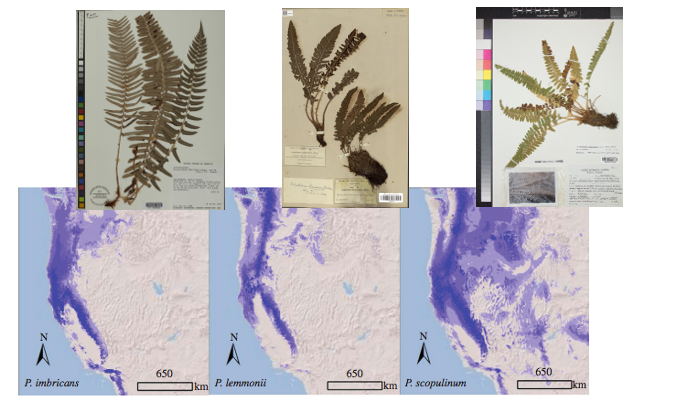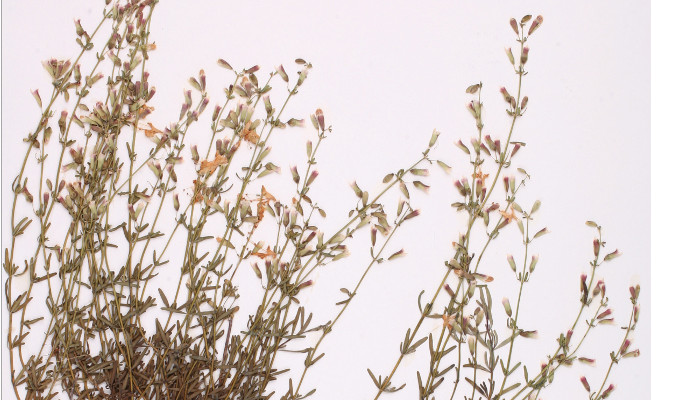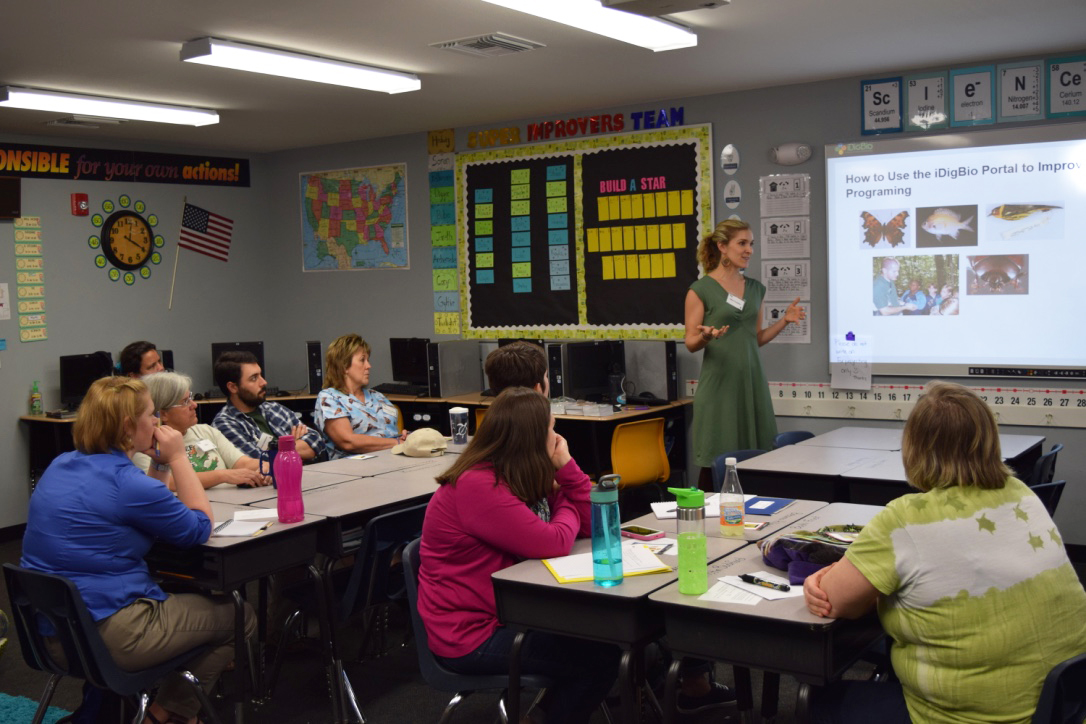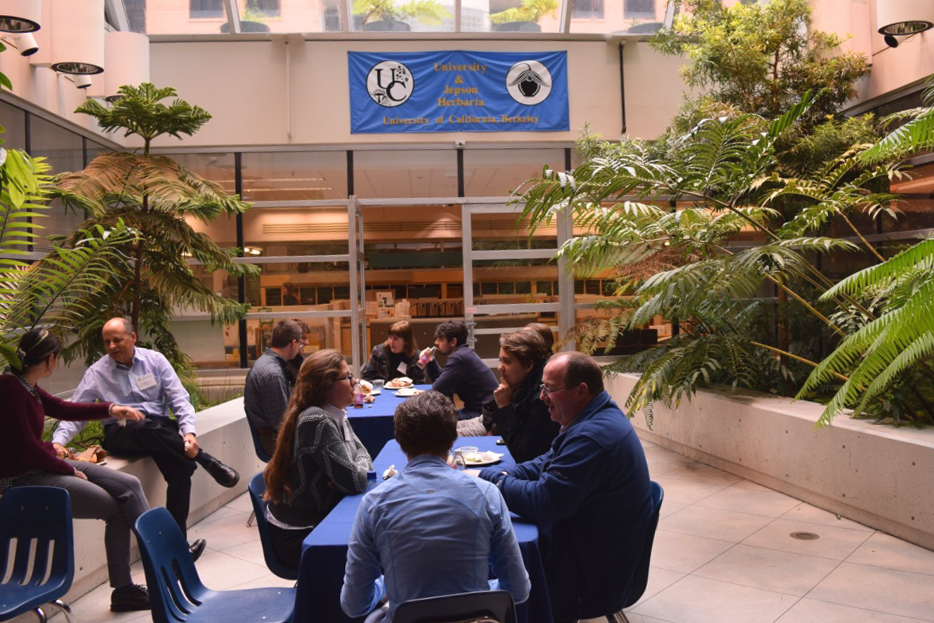Digitization Project Finds Anthrax in Collections
Got research data? Need to submit your important data and media associated with biological voucher specimens to a data repository as part of your data life cycle best practices workflow? Are you thinking iDigBio would be the ideal repository for your data?
Although iDigBio is a repository for recordsets of primary biodiversity data of vouchered natural history collections, it is not a "data repository" as defined by most journals. Accepting individual researcher datasets, even those consisting of vouchered, natural history specimen digitized data and media, currently falls outside of the Scope of iDigBio.
CALL FOR EXPRESSION OF INTEREST FOR AN INVITED SCIENTIST AND POST-DOC POSITIONS IN AZOREAN BIODIVERSITY GROUP (cE3c) – 2016-2020
The Azorean Biodiversity Group (cE3c) is conducting research within the recently created long-term ecology research ISLAND LAB (http://islandlab.uac.pt/index.php), aiming to use Macaronesia as model for investigating community assembly rules for taxonomic, functional and phylogenetic diversity. Based on high quality field data obtained with standardized protocols for several taxonomic groups within the last decades, we offer exciting opportunities to conduct novel research relating spatial with temporal scaling of biodiversity in islands.
Research Fellowships are about to open at the Fundação Gaspar Frutuoso, for the R&D Unit Centre for Ecology, Evolution and Environmental Changes /Azorean Biodiversity Group (cE3c/ABG), (Ref. UID/BIA/00329/2013) financed by national funds by FCT (Fundação para a Ciência e Tecnologia). CE3C/ABG is a leading research unit in its field of research (graded as EXCELLENT in the 2014 evaluation), offering a rich scientific and cultural environment.
At this stage we are looking for EXPRESSION OF INTEREST for the following positions:
A) Invited Scientist to start as soon as possible for a period of 18 months to “Investigate the causes, processes and responses of biological invasions in the context of climate and land-use change”. It is expected that the Invited scientist conducts metanalyses on the context of Iberia and Macaronesian Islands The salary will be around 2200 Euros per month plus some additional research funds. Contact: pborges@uac.pt
B) One Post-Doc position for the Project FCT-PTDC/BIABIC/0054/2014– MACDIV “Macaronesian Islands as a testing ground to assess biodiversity drivers at multiple scales”. See details of the project at http://gba.uac.pt/research/projects/ver.php?id=61. Coordinator: Paulo A. V. Borges. We expect someone with good skills in ecological and molecular modelling. This will be a two years position with a salary around 1500 Euros per month. Contact: pborges@uac.pt
C) One Post-Doc position for the Project “Azores Bioportal – PORBIOTA” (see details at http://gba.uac.pt/research/projects/ver.php?id=77; http://azoresbioportal.uac.pt/pt/and http://islandlab.uac.pt/). Coordinator: Paulo A. V. Borges. We expect someone with good skills in macroecological modelling to work with GBIF databases on islands. This will be a three years position with a salary around 1500 Euros per month. Contact: pborges@uac.pt
D) One Post-Doc position that will open soon for modelling Species Abundance Distributions (SADs). We expect someone with good skills in mathematical modelling. This will be a three years position with a salary around 1500 Euros per month. Contact: pborges@uac.pt
E) Several Post-Doc positions for the AZORES FRCT Post-Doc Call 2016. This Call will open soon and we are looking for young Ph.Ds that want to develop a first Post-Doc conducting research in Azores under the supervisor of one of our PIs (see our members at http://gba.uac.pt/teams/profile/?id=9 and http://gba.uac.pt/teams/profile/?id=10).
People working under these projects will hold contracts, not grants. The candidate should write a grant proposal in collaboration with the chosen ABG-cE3c superviser(s).
The research will be preferentially conducted in Biodiversity thematic, but related with the regional SMART Specialization areas: agro-ecosystems; tourism and marine research. We are interested in researchers from life and social sciences aiming to work in several areas like macroecology, invasion biology, climate change, urban ecology, landscape ecology, economic evaluation, environmental topics including risk assessment. Contact: pborges@uac.pt
Ever wondered where to start with analyzing a large biodiversity data set you've downloaded from iDigBio's portal or the iDigBio API? Wondering what software tools are available for cleaning your collections dataset or running some interesting queries? Finding a local Software Carpentry course is an excellent first step.
The University and Jepson Herbaria, University of California, Berkeley is seeking a Biodiversity Informatics Manager with a solid background in biology as well as experience in developing and managing bioinformatics programs in a research setting.
The successful candidate will manage a number of IT-based projects in floristics, systematics, and ecology and join our team of faculty, staff, and students pursuing excellence in collections-based research, teaching, and service to the public.
Applicants may find the position by following the link below and searching on the key word "Herbaria".
http://jobs.berkeley.edu/job-listings.html
-- Contributed by Blaine Marchant
My research for iDigBio addresses ecological and evolutionary questions by utilizing the enormous dataset provided by digitized natural history specimens from across North America. My current project is aimed at investigating the ecological differentiation of polyploid plant species from their diploid progenitor species....read more here.

-- Contributed by Andre Naranjo
I am a graduate student at the University of Florida, and a member of the Soltis Lab, working on a genus of scrub mints found only in the southeastern United States....read more here.

 iDigBio's Jillian Goodwin and Molly Phillips traveled to St. Marks, Florida, to participate in the League of Environmental Educators (LEEF) Conference at COAST Charter School from March 18-20, 2016.
iDigBio's Jillian Goodwin and Molly Phillips traveled to St. Marks, Florida, to participate in the League of Environmental Educators (LEEF) Conference at COAST Charter School from March 18-20, 2016.
 Herbarium specimens are rich with information above and beyond what is written on the label. In particular, specimens can tell us the phenological phase of the plant, as evidenced by the presence of buds, flowers, or young leaves.
Herbarium specimens are rich with information above and beyond what is written on the label. In particular, specimens can tell us the phenological phase of the plant, as evidenced by the presence of buds, flowers, or young leaves.